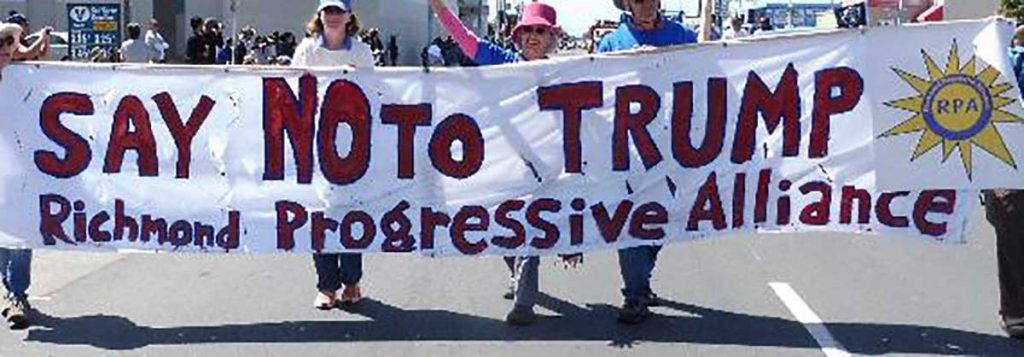From 2006 to 2014, under Green mayor, Gayle McLaughlin – an RPA founder – the city tackled environmental hazards arising from oil, extracting higher taxes from Chevron and suing the company for damage caused by a major refinery fire in 2012. A community mobilization led by environmental justice groups and the RPA helped Richmond win $90 million in financial concessions from Chevron in return for approving a refinery modernization project to improve safety and reduce pollution.
Richmond has also raised its local minimum wage and, by appointing a visionary gay police chief, greatly reduced local crime rates, including homicides, through successful community policing. In 2016, new rent control measures were brought in, which protect about 40% of all Richmond tenants.
The hybrid RPA has been central to all this. As a membership organization, a coalition of community groups, and a key coordinator of grassroots education and citizen mobilization, it works on issues such as labour, immigrant rights, environmental justice, rent, police accountability, fair taxation of business, community health and environmental protection.
Thanks to their year-round, non-electoral organizing work, RPA candidates now have a progressive “super-majority”. Voter alienation and estrangement from local politics has been greatly reduced and residents surveyed believe that the city has improved on all fronts. Richmond’s exemplary mix of electoral campaigning around issues and candidates, principled and persistent follow-up by elected officials, and some skilled professional city managing have made it a model for municipal action on behalf of people poorly served by local government in the past.
This story originally featured in the Atlas of Utopias.
An in-depth article about Richmond Progressive Alliance can be be read on the partnership page of Open Democracy and the Transnational Institute.
